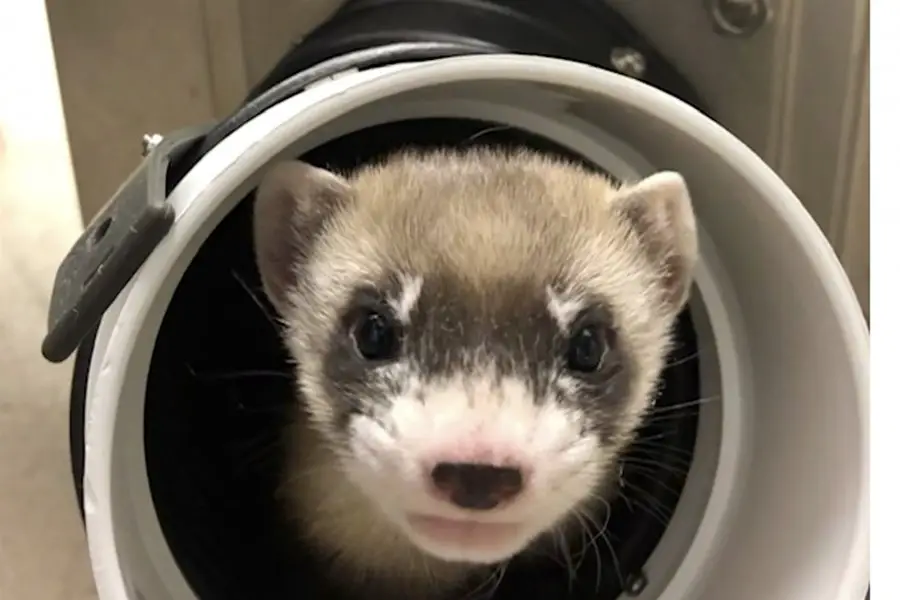Black-Footed Ferret: Scientist Successfully Clone The First U.S. Endangered Species
Tags: News

Scientists have cloned a Black-Footed Ferret whose remains were frozen in 1988 during the early days of DNA technology. The cloned Black-Footed Ferret named Elizabeth Ann and born at the Fish and Wildlife service Black-Footed ferret breeding facility in Fort Collins, Colorado on the10th of December 2020.
She is a genetic copy of a Black-Footed Ferret named Willa who died in 1988. Her tissue was sent to a “frozen zoo” by the Wyoming Game and Fish Department. The “frozen zoo” is run by the San Diego Zoo Global. The “Frozen zoo” contains more than 1,100 species and subspecies from around the world.
A Mongolia wild horse was cloned at a Texas facility last summer, this certainly ads a lot of hope for the potential of the technology in the future. Cloning could eventually bring back even more extinct species.
Ben Novak the lead scientist at Revive & Restore who along with a Texas based company Viagen were responsible for both the ferret and horse clones said: ” Biotechnology and genomic data can really make a difference on the ground with conservation efforts,”.
Black-Footed ferrets recognized by dark eye markings resembling a robber’s mask, fed mostly on Prairie dogs until most Prairie dogs were shot and poised off by ranchers. Black-Footed ferrets were thought to be extinct until a ranch dog named Shep in Wyoming brought a dead one home in 1981.
Since the 1990s Scientist have gathered the remaining population and used them in a captive breeding program that has since then released thousands of ferrets in dozens of sites.
The ferrets that have been reintroduced so far are all descendants of seven closely related animals whose genetic similarity poses an ongoing risk. That risk includes intestinal parasites and diseases. Viagen, who was previously mentioned, clones cats for $35,000 and dogs for $50,000.
Elisabeth Ann was born to a tame domestic ferret, this avoided putting the population of Black-Footed ferrets even more at risk. They also said that the future clones of Willa who died in 1988 will be kept in Fort Collins for study and not be released back into the wild.
In December 2020 Ben Novak loaded up a camper with his family and drove down to Fort Collins with his family to witness the culmination of a 7-year effort to clone a Black-Footed ferret firsthand. He said: “I absolutely had to see our beautiful clone in person,” and “There’s just nothing more incredible than that.”
By Ruan Van Zijl / Truth Theory
Image credit: U.S. Fish and Wildlife Service
Leave Comment: